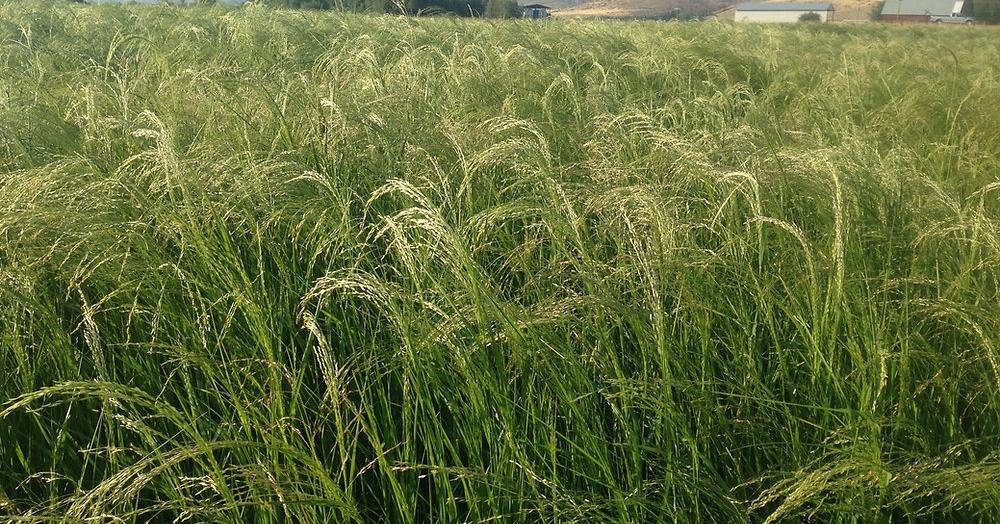Are you curious to know what is teff hay? You have come to the right place as I am going to tell you everything about teff hay in a very simple explanation. Without further discussion let’s begin to know what is teff hay?
The health and well-being of horses depend significantly on their diet, and choosing the right forage is crucial to ensuring optimal nutrition. Teff hay, a relatively lesser-known forage option, has been gaining recognition for its nutrient-rich profile and suitability for equine diets. In this blog post, we’ll explore what teff hay is, its nutritional benefits, and why it’s becoming a popular choice among horse owners.
What Is Teff Hay?
- Teff Grass Origins:
Teff (Eragrostis tef) is a warm-season grass native to Ethiopia, where it has been a staple food for centuries. Traditionally cultivated for human consumption, teff has also found its way into the equine world as a valuable forage option.
- Teff Hay Production:
Teff hay is produced by harvesting the teff grass at an early stage before it reaches maturity. This is crucial for preserving its nutritional value, as mature teff grass tends to become coarse and less palatable. The hay is then cured and baled for storage and feeding.
Nutritional Benefits Of Teff Hay For Horses:
- Rich in Fiber:
Teff hay is an excellent source of dietary fiber, essential for maintaining healthy digestion in horses. The fibrous content aids in promoting gut motility, preventing issues such as colic and promoting overall digestive health.
- Low in Non-Structural Carbohydrates (NSC):
Teff hay is known for being relatively low in non-structural carbohydrates, making it a suitable forage option for horses that require a low-carbohydrate diet. This can be beneficial for horses with metabolic conditions such as insulin resistance or equine metabolic syndrome.
- Nutrient Density:
Despite its low stature, teff hay is nutrient-dense. It provides a good balance of essential nutrients, including protein, vitamins, and minerals, contributing to the overall health and vitality of horses.
- Palatability:
Horses generally find teff hay palatable, making it an appealing option for even picky eaters. The grassy aroma and finer texture of teff hay contribute to its acceptance among a variety of equine breeds.
- Weight Management:
For horses requiring weight management, teff hay can be a valuable component of their diet. Its lower calorie content, combined with its nutritional richness, allows for a balanced approach to weight control.
For more information like this visit Weji.
Considerations For Feeding Teff Hay:
- Balancing Nutritional Needs:
While teff hay offers a range of nutrients, it’s essential to assess the overall diet of the horse to ensure that it meets specific nutritional requirements. Supplementary feed or mineral supplements may be necessary to address any deficiencies.
- Gradual Introduction:
When introducing teff hay into a horse’s diet, it’s advisable to do so gradually. This allows the horse’s digestive system to adjust to the new forage source and minimizes the risk of digestive upset.
- Consultation with a Veterinarian:
Before making significant changes to a horse’s diet, consulting with a veterinarian or equine nutritionist is recommended. They can provide tailored advice based on the individual needs and health status of the horse.
Conclusion:
Teff hay is emerging as a valuable forage option for horse owners seeking a nutrient-rich, low-carbohydrate feed for their equine companions. Its positive attributes, including fiber content, nutrient density, and palatability, make it an attractive choice for a variety of horses, from those with specific health conditions to those in need of weight management. As the equine community continues to explore alternative forage options, teff hay stands out as a versatile and nutritionally beneficial choice for promoting the health and well-being of our four-legged friends.
FAQ
What Is Teff Hay Good For?
Teff is best used for horses with lower energy needs or horses prone to metabolic diseases. It is a warm-season grass that needs to be planted later in the spring and may die off from some of the first cooler Minnesota nights.
Is Teff Hay Better Than Alfalfa?
Teff is a lower-quality protein than other forages. Compared to teff, alfalfa and cool-season grasses contain higher levels of most amino acids. Amino acids are the building blocks of protein and are important for muscle repair and recovery following exercise.
Is Teff Hay Good For Cows?
Teff makes a very palatable hay and is well accepted by horses, llamas, alpacas, and similar livestock. Recently weaned calves also adapt to teff hay quite quickly. Teff may be better suited to these uses than our other summer annual grasses. Of course, stock cows, replacement heifers, and other cattle also like it.
What Is The Difference Between Teff And Lucerne?
Remember, Teff contains some oxalates, binding up calcium. To counter this, you need to add more calcium. Lucerne is high in calcium (around 12 g in every kilo of Lucerne) and it is much more palatable than Limestone. Teff is also a bit low in quality protein.
I Have Covered All The Following Queries And Topics In The Above Article
What Is Teff Hay
What Is Teff Grass Hay
What Grass Hay Is Comparable To Teff Hay In Price
What Is Teff Hay For Horses?
What Is Teff Hay Good For
What Is Thevitamin Brake Down Of Teff Hay
What Is The Vitamin Break Down Of Teff Hay
What Is The Vitamin Break Down Of Teff Hay For Horses
Teff Hay Is Low In What Kind Of Sugar
Teff Hay What Is It?
What Is Teff Hay Used For
Does Teff Hay Cause Colic
Teff Hay For Cattle
What Is Teff Hay For Horses
Teff Hay Vs Orchard Grass
Teff Hay Vs Grass Hay
Teff Hay Nutritional Value
Teff Hay Reviews
What Is Teff Hay
What is teff hay good for
